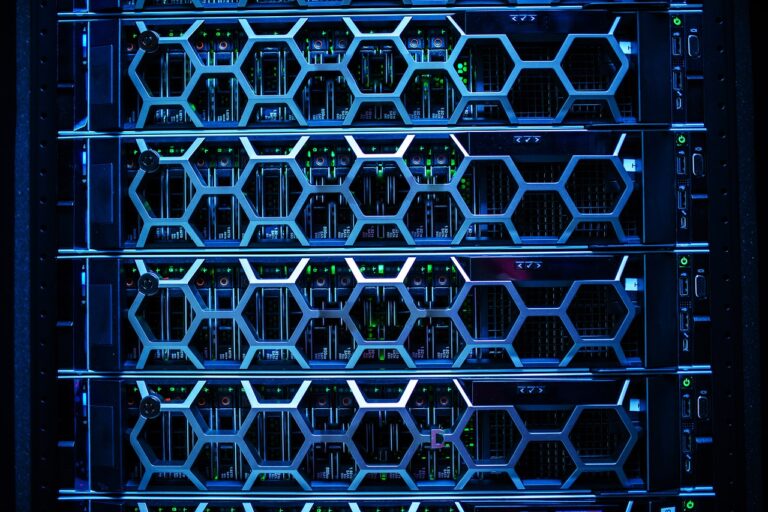The Role of AI in Modern Farming: Goldbet7. com, Radhe exchange, 11x play
goldbet7. com, radhe exchange, 11x play: As technology continues to advance, the role of artificial intelligence (AI) in modern farming is becoming increasingly significant. AI has the potential to revolutionize the way we produce food by making farming practices more efficient, sustainable, and cost-effective. In this article, we will explore the various ways in which AI is being used in agriculture and the benefits it brings to farmers and consumers alike.
AI in Precision Agriculture
One of the key areas where AI is making a big impact on modern farming is in precision agriculture. Precision agriculture involves using technology to optimize the use of resources such as water, fertilizers, and pesticides, to maximize crop yield while minimizing waste. AI-powered systems can analyze data from sensors, drones, and satellites to provide farmers with real-time insights into their crops’ health, soil quality, and water needs. This allows farmers to make more informed decisions about when and where to plant, irrigate, and harvest their crops, leading to higher yields and reduced costs.
AI in Crop Monitoring
Another important application of AI in modern farming is in crop monitoring. AI-powered systems can analyze images of crops taken from drones or satellites to identify pests, diseases, and nutrient deficiencies. By detecting these issues early on, farmers can take corrective action before they have a chance to spread and cause significant damage to the crops. This not only helps farmers protect their yields but also reduces the need for chemical pesticides and fertilizers, making farming more sustainable in the long run.
AI in Autonomous Farming
AI is also being used to automate farming tasks that were previously done manually, such as planting, weeding, and harvesting. Autonomous tractors and robots equipped with AI technology can navigate fields, identify crops, and perform tasks with precision and efficiency. This not only saves farmers time and labor costs but also reduces the risk of human error and increases overall productivity. With the rise of autonomous farming, farmers can focus on more strategic aspects of their operations, such as crop planning and marketing, rather than spending hours on repetitive tasks in the field.
AI in Weather Forecasting
Weather plays a crucial role in farming, as it can impact crop growth, pest outbreaks, and irrigation needs. AI-powered weather forecasting systems can analyze vast amounts of weather data from satellites, sensors, and historical records to provide accurate and timely predictions for specific locations. By knowing what weather conditions to expect, farmers can better plan their planting and harvesting schedules, optimize irrigation practices, and protect their crops from extreme weather events. This can help farmers mitigate the risks associated with climate change and ensure a stable food supply for years to come.
AI in Supply Chain Management
AI is also transforming the way food is produced, processed, and distributed across the supply chain. AI-powered systems can optimize logistics, inventory management, and quality control to ensure that food products reach consumers in a timely and efficient manner. By tracking products from farm to table, AI can help reduce food waste, improve traceability, and ensure food safety standards are met throughout the supply chain. This benefits not only farmers and consumers but also retailers, restaurants, and food manufacturers who rely on a smooth and reliable supply chain to deliver fresh, high-quality products to their customers.
AI in Market Analysis
In addition to improving on-farm productivity, AI can also help farmers make better decisions about what and when to plant based on market demand. AI-powered systems can analyze market trends, consumer preferences, and pricing data to provide insights on which crops are in demand and which are likely to fetch higher prices. By adjusting their planting decisions accordingly, farmers can maximize their profits and reduce the risk of overproduction or undersupply. This helps create a more sustainable and resilient agricultural system that can adapt to changing market conditions and consumer preferences.
AI in Soil Health Monitoring
Soil health is essential for sustainable agriculture, as it provides the nutrients and support necessary for plants to grow and thrive. AI-powered soil sensors and monitoring systems can analyze soil samples to assess nutrient levels, pH, moisture content, and microbial activity. By understanding the health of their soil, farmers can make informed decisions about fertilization, crop rotation, and soil conservation practices to improve soil fertility and productivity over time. This not only benefits farmers by increasing crop yields but also helps preserve the long-term health of the land for future generations.
FAQs
Q: How is AI different from traditional farming practices?
A: AI differs from traditional farming practices in that it relies on data-driven decision-making, automation, and machine learning algorithms to optimize farming operations. This allows farmers to make more informed and efficient decisions about crop management, resource use, and supply chain logistics.
Q: Can small-scale farmers benefit from using AI in their operations?
A: Yes, small-scale farmers can benefit from using AI in their operations, as it can help them optimize their resources, reduce costs, and improve crop yields. Many AI solutions are scalable and adaptable to different farm sizes, making them accessible to farmers of all scales.
Q: What are some of the challenges of adopting AI in modern farming?
A: Some of the challenges of adopting AI in modern farming include high initial costs, lack of technical expertise, data privacy concerns, and regulatory barriers. However, as AI technology continues to mature and become more affordable, these challenges are expected to become less significant over time.
In conclusion, the role of AI in modern farming is rapidly expanding, with a wide range of applications that are transforming the way we produce food. By harnessing the power of AI, farmers can improve their productivity, sustainability, and profitability, while also ensuring a stable food supply for a growing population. As AI technology continues to evolve, we can expect to see even more innovative solutions that will shape the future of agriculture for years to come.







